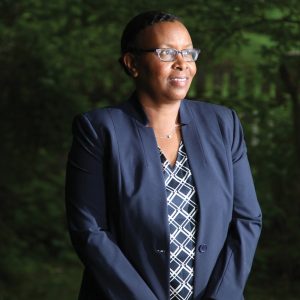Professor Ray Madoff’s campaign to pry philanthropic dollars from donor-advised funds and private foundations and get those monies to working charities made important progress in June when Senators Angus King (I-ME) and Chuck Grassley (R-IA) introduced the bipartisan Accelerating Charitable Efforts (ACE) Act.
The bill’s provisions are based on proposals developed by the Initiative to Accelerate Charitable Giving, a consortium of leaders from the charitable sector, including philanthropist John Arnold and the Ford, Hewlett, Kresge, and Kellogg foundations. Madoff has been exploring these issues through the Forum on Philanthropy and the Public Good, a think tank she founded with BC Law adjunct professor William Bagley in 2014, where scholars, former government officials, and billionaires study how to reform the laws governing philanthropy.
Among the forum’s influential publications is the recent report, “Impact of the Rise of Commercial Donor-Advised Funds on the Charitable Landscape 1991-2019,” which was highlighted by the Chronicle of Philanthropy News Digest. The report, co-authored by Madoff and economist James Andreoni, shows that charities missed out on $300 billion in donations from 2014-2018 because of the increase in money flowing to private foundations and donor-advised funds.
Senator King said that the ACE Act will “ensure that charitable contributions will swiftly reach the worthy organizations doing good…all over the world.”
Currently, an individual or family who sets up and contributes to a donor-advised fund with a financial institution (like Fidelity, Schwab, Vanguard, or Goldman Sachs) benefits from an immediate charitable tax deduction. The financial institution that holds the funds benefits by collecting management fees. However, charities (like the local food pantry) may never benefit, because there is no requirement that the funds be dispersed to them. In an article that features Madoff, the New York Times reports that the ACE Act “would require a donor who wanted the full tax benefit right away to ensure that the funds were dispensed within fifteen years. If that is too fast a pace, or if donors are focused on giving over a longer time span, they could take fifty years to pay out. But they would need to wait until then to claim the full tax deduction.”

“It’s very exciting to have bipartisan support for this incrediblyimportant issue. This proposed bill takes an important step in restoring charities as the appropriate focus for charitable tax benefits.”
The ACE Act would also close certain loopholes exploited by private foundations (like the Bill and Melinda Gates Foundation, the Walton Family Foundation, and numerous small family foundations). Private foundations are required to pay a minimum of 5 percent of their assets to charity each year. The loopholes allow them to count as part of their minimum pay-out the salaries and travel expenses of family members, and any donations made to donor-advised funds. The ACE Act would end those practices.
Today, an estimated $140 billion is sitting in donor-advised funds, and $1 trillion is bottled up in private foundations’ endowments.
“It’s very exciting to have bipartisan support for this incredibly important issue,” Madoff says. “Over the past thirty years, the focus has shifted to donors, and charities have been shunted to the sidelines. This proposed bill takes an important step in restoring charities as the appropriate focus for charitable tax benefits.”
What’s next for the forum? “Well,” Madoff says, “we have a bill proposed, but that’s not a law passed. So, for now, we are absolutely going to be working on educating the public and the sector about the importance of these rules.”
Read a status update on the proposed bill here.




